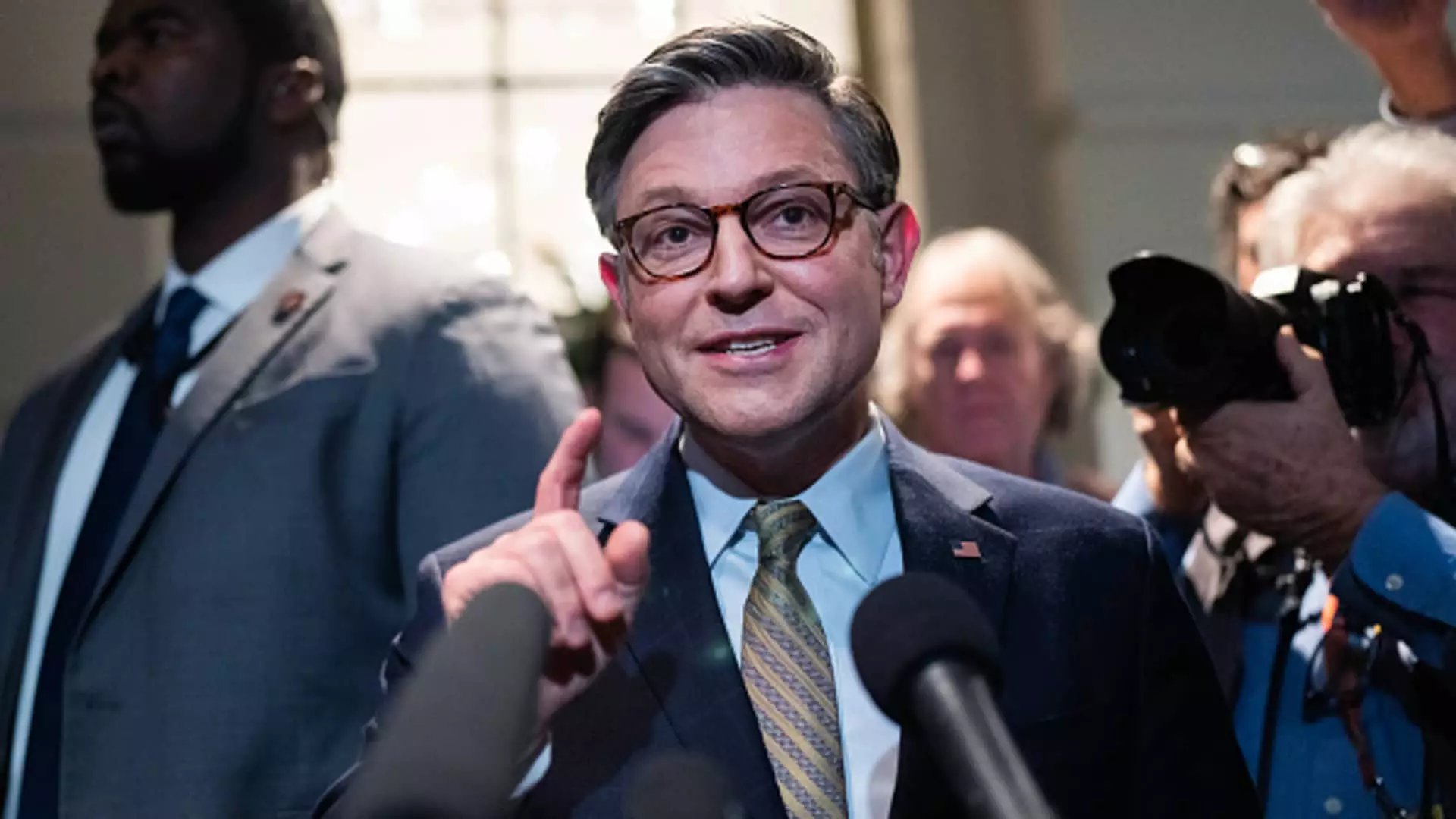In the heart of Washington D.C., political players have once again found themselves at a crossroads, as the House of Representatives managed to pass a vital federal spending bill just hours ahead of a looming government shutdown deadline. This recent legislative act underscores the intricacies of bipartisan collaboration amidst political strife, debt ceiling deliberations, and looming holiday pressures on federal workers.
On a pivotal Friday, with time ticking near midnight, the House reached a consensus on a spending bill that would extend government funding for an additional three months. The bill was characterized by a substantial level of Democratic support, with nearly two-thirds of the members present casting their votes in favor. This overwhelming approval reflects a mutual understanding among lawmakers from both parties of the dire implications that a government shutdown could pose, particularly days before Christmas, a time when the financial stability of countless federal employees hangs in the balance.
As the legislation made its way to the Senate, uncertainty loomed large. The Senate, under Democratic control, appeared poised to pass the bill, yet the unique structure of parliamentary procedure means that individual senators wield considerable influence over legislative outcomes. This means that the potential for last-minute amendments or objection could threaten the smooth passage of the bill.
The Administration’s Position
The White House has signaled its intent to support the bill, albeit with certain qualifications. Press secretary Karine Jean-Pierre noted that while the legislation does not encompass every aspiration of the administration, it remains a critical step toward securing government continuity. Should the Senate mirror the House’s votes, President Biden is expected to sign the legislation promptly, emphasizing the administration’s commitment to maintaining essential government services.
This bill represents a fragile compromise in a political landscape showing signs of increasing polarization as incoming President Donald Trump, alongside influential figures like Elon Musk, voiced strong objections to previous funding proposals. Their criticisms have further complicated what was an already tumultuous negotiations process, reflecting the challenges faced by lawmakers as they seek middle ground.
Debt Ceiling Dynamics
Central to the ongoing debates is the contentious issue of the U.S. debt ceiling. Trump’s insistence that any funding agreement must include a temporary suspension of the borrowing limit highlighted the recurring tensions within congressional negotiations. For many hardline conservatives, agreeing to raise the debt ceiling remains a contentious issue, underscoring a divide within the Republican Party that complicates their unity and effectiveness in a negotiating environment.
This current standoff is not merely a procedural hurdle but represents deeper ideological rifts that could doom future initiatives. The failed attempts to incorporate debt ceiling discussions into the funding bill serve as a reminder of the fragile landscape in which bipartisan efforts must navigate tensions exacerbated by individual agendas and party principles.
The recent legislative maneuvering on Capitol Hill exemplifies the unpredictable nature of Washington politics, where the intersection of necessity, political will, and individual agendas often dictate the course of action. The battle lines drawn over the debt ceiling are emblematic of the broader challenges that await lawmakers, particularly as they head into a period characterized by budget negotiations and fiscal responsibilities.
As the dust settles from recent votes and debates, the urgency for Congress to act responsibly remains more critical than ever. The need for effective governance is not only about averting immediate crises but also about fostering a collaborative atmosphere that can accommodate diverse viewpoints and enhance legislative efficacy. Such cooperation is essential not just to avoid shutdowns but to build a sustainable framework for addressing the myriad challenges facing the nation.
The bipartisan spending bill’s passage amidst the chaos of competing agendas is a testament to the complexities of governance in modern America. As lawmakers brace for the challenges ahead, their ability to forge consensus will be put to the test once again, reflecting the intricate dance of politics that is so pivotal in determining the nation’s fiscal future.


Leave a Reply